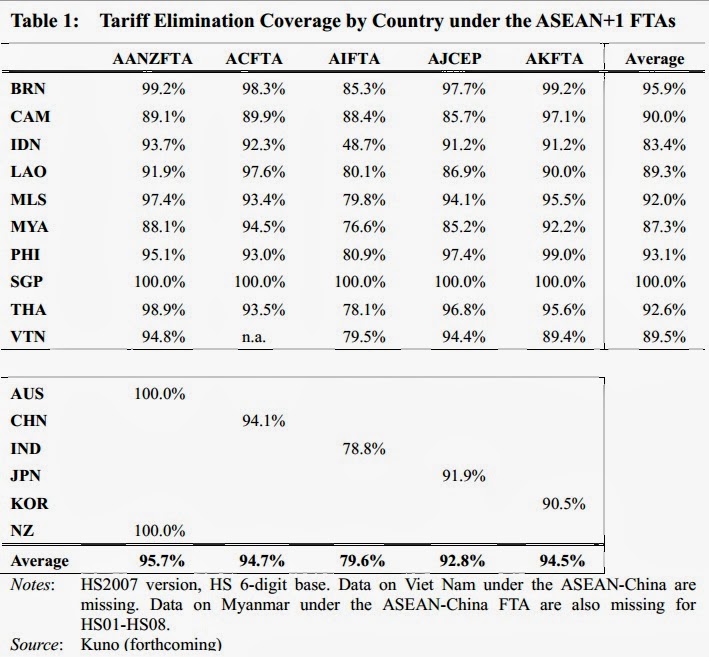The purpose of free trade is to make cheap things remain
cheap and the purpose of protectionism is to make cheap things become
expensive. Protectionism imposes high tariff, taxes, fees, charges, and more
paper work to complicate things that are otherwise simple and easy to do.
As the US presidential election nears, many issues have
become convoluted as expected in any major political exercise.
One issue that gets murky is trade.
Mr. Donald Trump has been vocal about some of his
protectionist pronouncements like attacking the US involvement in the
Trans-Pacific Partnership (TPP) while Mrs. Clinton is less gung-ho about
protectionism.
Last July 26, 2015, Bloomberg produced an article, “If
Trump Wins, Asia Loses.” This story was shared by many Filipinos in Facebook
and other social media platforms because the Philippines was mentioned.
“An investor survey conducted earlier this month by
Nomura Holdings, Inc. flags a long list of worries under a Trump presidency:
from a possible rise in trade protectionism…
The Philippines faces risks because of possible
immigration restrictions. The US is host to 35 percent of the total number of
Filipinos working abroad, and Nomura estimates they account for about 31% of
total worker remittances, a key source of foreign inflows for the local
economy.
The Philippines has one of the biggest export exposures
to the US in Southeast Asia and Trump’s pledge to bring jobs back to the US may
threaten the nation’s burgeoning business process outsourcing sector. The
industry caters mostly to US companies and attracts revenue that may equal the
size of total worker remittances, about 9% of GDP, over the next two years,
according to Nomura.”
There are a number of misinformation stated in this
report.
One, in trade theory and practice, the big loser in
protectionism policy is the protectionist country, not its trade partner/s.
By making otherwise cheap goods from abroad become
expensive, that country is penalizing its own consumers and manufacturers. In
which case, the title of the piece should be “If Trump (and protectionism)
wins, America loses.”
Two, the US’ merchandise trade exposure in Asia is huge,
indicating that US households and businesses make substantial income and
savings when they export to and import from Asia than Europe or Central and
South America. In 2014, 27% or more than one-fourth of its exports went to
Asia, its second biggest continental trade partner next to its North American
neighbors, and bigger than Europe. And almost 40% of its imports that year came
from Asia or slightly lower than its imports from North America and Europe
combined at 46.5%.
Three, while the Philippines exported $8.4 billion to the
US in 2014, it also imported $10.1 billion from the US, so it makes little
sense to antagonize the Philippines with protectionism when the US earns more
from the partnership. The US BPOs here means those US companies provide good
services and backup support to their customers worldwide by utilizing cheaper
and efficient personnel in the Philippines.
The table shows merchandise trade of the United States by
origin and destination, 2014, $ million and percentage.
Four, a graphical presentation that the bigger loser of
protectionism policy is the protectionist country, not the trade partner/s
would look like this: Imagine a supply-demand curve with equilibrium or
market-clearing price of P* for all trading countries. Country A becomes
protectionist, its supply curve moves to the left so its new equilibrium price
goes up to P1, higher than P*, or P1 > P*.
In contrast, countries B, C,... remain free traders,
their respective supply curves move to the right, their new equilibrium price
moves lower to P2, or P2 < P*. Consumers and manufacturers in these
countries will be happy with more supply of various products and result in
lower prices owing to trade diversion from protectionist to other free trader
economic partners. There will be some short-term business dislocation, true,
but firms and people adjust or even anticipate these changes and have plans B
and C in place, including bigger trade among non-protectionist economies.
If America -- whether under Mr. Trump or Mrs. Clinton --
will become protectionist, America loses, not Asia. Free trade, more choices,
more economic freedom, is the best policy that a government can give to its
people.
Bienvenido S. Oplas, Jr. is a SEANET Fellow, head of
Minimal Government Thinkers, and both institutes are members of the Economic
Freedom Network (EFN) Asia.
---------------
See also:
BWorld 71, Free trade and higher income, July 11, 2016
BWorld 75, How to profit from urban congestion, July 30, 2016
BWorld 76, Solar can never power the PH and Asia, August 06. 2016 BWorld 77, Migration and housing, August 10, 2016



















